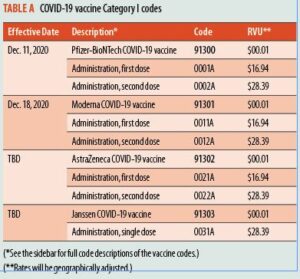Explore the effects of Respiratory Syncytial Virus (RSV) during pregnancy, including risks, fetal impacts, and the importance and benefits of vaccination for expectant mothers.As concerns about respiratory infections continue to rise, the spotlight has turned to Respiratory Syncytial Virus (RSV), particularly its implications for pregnant women and their unborn children. RSV is a common virus that can lead to severe respiratory illness, especially in vulnerable populations. For expectant mothers, the stakes are even higher, as the risk of RSV infection during pregnancy poses potential threats not just to their health, but to the developing fetus as well. Understanding these risks highlights the importance of preventative measures, including vaccination. In this blog post, we will explore the nature of RSV, the risks it presents during pregnancy, the effects of infection on the fetus, and the crucial benefits of the RSV vaccine for pregnant women. Join us as we delve into this critical topic for safeguarding maternal and fetal health.
Understanding Respiratory Syncytial Virus (RSV)
Respiratory Syncytial Virus (RSV) is a common virus that typically leads to mild, cold-like symptoms. However, it has the potential to cause severe respiratory issues, especially in high-risk groups such as infants, the elderly, and those with compromised immune systems. Understanding the characteristics and risks associated with RSV is crucial for both individual and public health.
RSV is highly contagious and spreads through respiratory droplets when an infected person coughs or sneezes. It can also survive on surfaces for several hours, contributing to its transmission. The virus primarily affects the respiratory tract, causing inflammation and congestion, which can lead to conditions such as bronchiolitis and pneumonia, particularly in vulnerable populations.
In addition to infants and the elderly, pregnant women may have increased susceptibility to RSV-related complications. As such, awareness of the potential risks of RSV infection during pregnancy is vital. Preventive measures, including proper hygiene and vaccination for at-risk groups, can significantly reduce the spread and impact of the virus.
Risk of RSV Infection During Pregnancy
Respiratory Syncytial Virus (RSV) is a common virus that can lead to severe respiratory infections, particularly in infants and young children. However, the *risk of RSV infection during pregnancy* warrants special attention. Pregnant women are at an elevated risk for respiratory viruses due to various health changes that occur during pregnancy. This can lead to more significant complications for both the mother and the developing fetus.
Research indicates that during pregnancy, a woman’s immune system is somewhat suppressed to protect the fetus. This immunity shift makes pregnant women more susceptible to infections, including RSV. The likelihood of contracting RSV increases in environments where the virus is prevalent, such as hospitals or crowded places, particularly during fall and winter when respiratory viruses commonly circulate.
The implications of RSV infection during pregnancy can be severe. If a pregnant woman contracts RSV, she may experience increased respiratory distress and a higher chance of complications, which can also affect the fetus. For example, studies have shown maternal RSV infection can lead to premature birth or low birth weight. Therefore, understanding the *risk factors and preventive measures* is essential for safeguarding maternal and fetal health.
Effect of RSV Infection on Fetus
Respiratory Syncytial Virus (RSV) is a significant viral infection that predominantly affects young children and infants. However, its impact during pregnancy can also pose serious concerns for the developing fetus. Understanding these effects is crucial for expectant mothers and healthcare providers.
Research indicates that if a pregnant woman becomes infected with RSV, it can lead to various complications not only for her health but also for the health of the fetus. In severe cases, the infection may contribute to premature labor, low birth weight, and other complications that may affect the baby’s development both in utero and after birth.
Moreover, the timing of RSV infection during pregnancy is essential. If the infection occurs during the late stages of pregnancy, the risk of respiratory issues in the newborn may increase. Newborns are particularly vulnerable to RSV as their lungs and immune systems are still developing, making it vital for pregnant women to take preventive measures against this virus.
Importance of Vaccination for Pregnant Women
The importance of vaccination during pregnancy cannot be overstated. Pregnant women are at a higher risk of severe illness from infections due to changes in their immune system. Vaccinations help protect both the mother and the developing fetus from potentially harmful diseases.
One of the most significant vaccines recommended for pregnant women is the RSV vaccine. Respiratory Syncytial Virus (RSV) can lead to severe respiratory issues, particularly in newborns and young children. By getting vaccinated, pregnant women can pass antibodies to their babies, offering them some level of protection.
Additionally, vaccines that are administered during pregnancy, such as the flu vaccine and the Tdap vaccine, can provide essential immunity to newborns until they are old enough to receive their own vaccinations. Safe and effective, these vaccines play a crucial role in preventing serious health complications for both mother and child.





